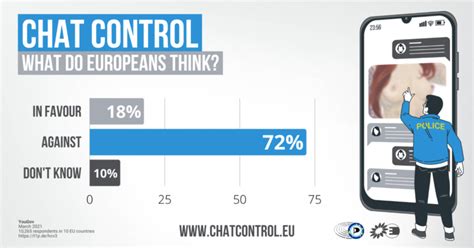The European Union is no stranger to ambitious regulatory agendas, as evidenced by its recent proposal to implement rigorous chat control measures. Under these potential regulations, users who refuse to have their contents scanned would be barred from sharing photos and links. This proposition comes as a rather controversial move, prompting fierce debates about privacy, surveillance, and the practical implications for modern digital communication platforms. For many, this is reminiscent of George Orwell’s dystopian worlds, where surveillance is ubiquitous, and privacy is eroded under the guise of security.
A deep dive into user comments reveals a significant discontent with this legislation. One user, ‘seper8’, sarcastically exclaims, ‘Won’t anyone think of the children!!!’, underscoring how the legislation uses child protection as a justification for extensive surveillance. This sentiment echoes across multiple threads, reflecting a broader fear that such laws are crafted by individuals who may not fully grasp the long-term societal repercussions. It’s a step many see as draconian, undermining the fundamental tenet of personal privacy.
The argument that the move could turn into an Orwellian nightmare isn’t baseless. The exemptions from chat controls for security authorities and military personnel, highlighted repeatedly by users, intensify these fears. As ‘rightbyte’ and others pointed out, failing to include these fields in surveillance contradicts the legislative intent of ensuring safety and security. If anyone should be monitored for nefarious activities, it arguably should be individuals with access to sensitive information or influential power. This double standard exacerbates the mistrust in governmental intentions, reinforcing the belief that the legislation is less about children’s safety and more about cementing control.
A user named ‘everforward’ brings another nuanced perspective to the table. They acknowledge both the good and bad reasons behind the legislative exclusions. Indeed, the idea that such sensitive communications as those of military officials or lawyers should ideally be on secure channels is logical. However, the user also argues that the broad exclusions might end up rendering the entire scanning effort moot. The probability of preventing substantial incidents through these scans remains speculative. Meanwhile, the risk to privacy for ordinary citizens is immediate and palpable.
Moreover, technical feasibility and enforcement are also contentious points. Can this legislation even be genuinely effective without creating more significant security vulnerabilities or operational disruptions? For instance, encrypted messaging services like WhatsApp and Signal would face challenges maintaining their core promise of privacy while complying with such mandates. These services are built on end-to-end encryption principles, and legislating a backdoor or a mandatory scan would be technically difficult and ethically controversial. This dichotomy extends to open-source applications, which could potentially be banned or crippled under these new rules, thereby stifling innovation and self-hosting solutions.
Additionally, there is the argument about ‘dark patterns’ and user behavior online. Users often agree to invasive terms and conditions out of convenience without understanding the broader implications. This reality could mean that while users technically have a choice to opt out, in practice, most will not. As ‘WA’ aptly notes, this fake choice reputs users in a position where they must sacrifice significant privacy to remain engaged in digital communication, underlining a critical vulnerability of the proposed legislation.
Imagining practical workarounds underscores the absurdity of the regulation. Users could resort to obfuscated communication methods – from ASCII art to encrypted files. Such tactics would burden regular users while doing little to deter sophisticated malefactors. Compliance might also be disproportionately enforced, with minorities and less tech-savvy populations bearing the brunt of false positives and wrongful legal consequences. These fears, coupled with the perceived inefficacy in actually protecting children from harm, create a strong case against the proposed regulations.
In conclusion, the European Union’s chat control initiative opens a Pandora’s Box of ethical, technical, and practical dilemmas. While the goal of protecting children from harm is noble, the means proposed seem draconian, potentially ineffective, and injurious to personal liberty. A nuanced approach, one that manages the delicate balance between security and privacy without tipping too far into surveillance territory, is paramount. As legislative bodies deliberate on this proposal, it is essential to consider these criticisms and the genuine fears it evokes in the general populace. The future of digital communication and the essence of privacy depend on thoughtful, measured actions rather than outright authoritarian control.


Leave a Reply